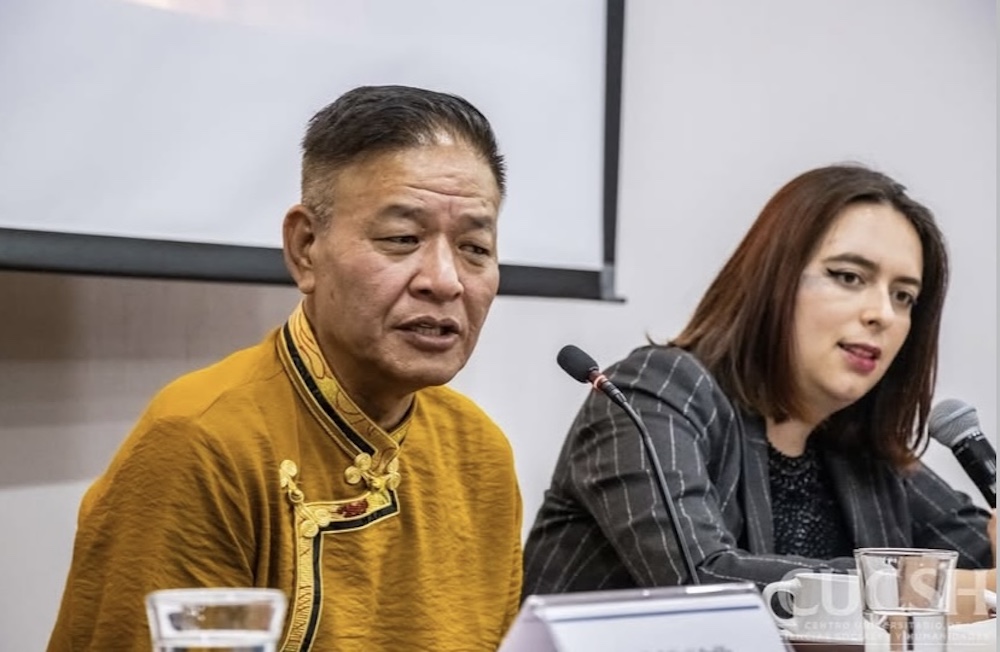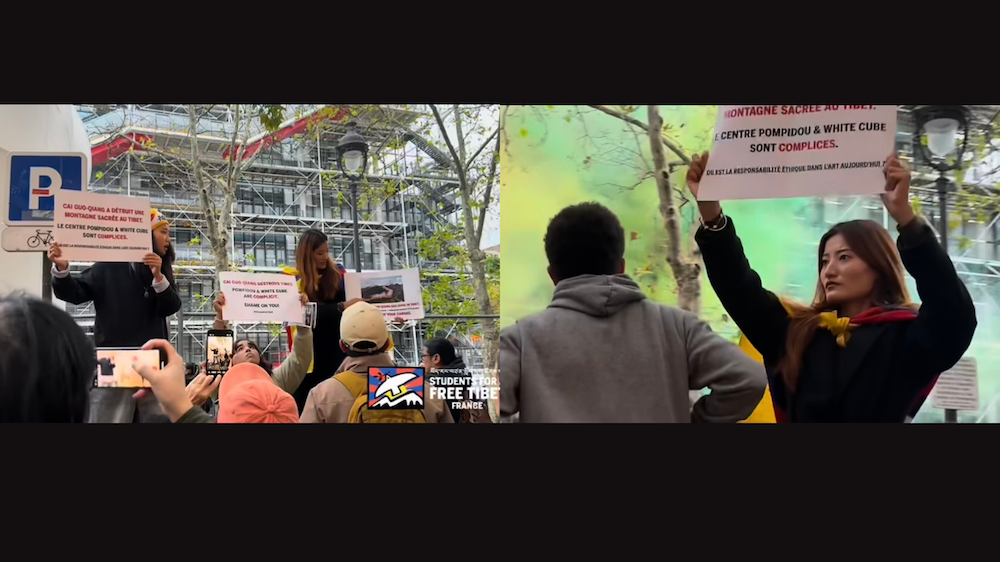PARIS – China and France on Tuesday warned Taiwan against holding a referendum, with French President Jacques Chirac saying that any measure that breeds tension between the two Asian rivals is dangerous.
Chirac also spoke out strongly in favor of lifting a European embargo on arms sales to China — imposed after Beijing’s crackdown on democracy protests in Tiananmen Square in 1989.
‘‘This embargo no longer makes any sense,’’ the French president said at a news conference with Chinese President Hu Jintao. ‘‘It will, I hope, be lifted in the months to come.’’
European ministers meeting Monday in Brussels said the EU could decide this spring to lift the ban.
China’s human rights record was also on Chirac’s agenda with Hu.
Later Tuesday, Hu was getting the rare honor of speaking before France’s parliament. But close to 25 lawmakers critical of the Chinese government’s human rights record said they would boycott the speech.
On Taiwan, in opposing the referendum plans, Chirac aligned France with the United States — Taiwan’s most important friend — and Japan, which have both expressed concern about the planned March 20 vote.
Chirac warned that the vote threatened stability in that Asian region.
‘‘All initiatives that can be interpreted as aggressive by one side or the other are dangerous for everyone and thus irresponsible,’’ said Chirac.
‘‘That is why France, it’s correct, condemns a measure like a referendum or all others that can appear aggressive,’’ the French president added. ‘‘This initiative is dangerous for everyone, for Taiwan, for China and for stability.’’
At a state dinner for Hu a day earlier, Chirac said the referendum would be a ‘‘grave error.’’ In a statement signed Tuesday with Hu, Chirac said France opposes any unilateral measure that would increase tensions, ‘‘including a referendum that would aim to modify the status quo.’’
Taiwanese President Chen Shui-bian, long regarded with suspicion by Beijing, plans to ask voters whether the island should reinforce its defenses if China continues to threaten the island with hundreds of missiles.
China opposes the plan — as it does any measure which it fears could mark a step toward its worst-case scenario: Any declaration by Taiwan that it is formally separating itself from the Chinese, Communist Party-ruled mainland.
China, which regards Taiwan as part of its territory, has for years warned that it would use force to stop that from happening.
‘‘We resolutely oppose Taiwanese independence, and also oppose any activity that promotes independence in the name of a so-called referendum,’’ said Hu, the Chinese leader, after talks and the signing of the joint statement with Chirac.
Reiterating long-standing policy, he said China ‘‘will make the maximum effort to achieve peaceful reunification and resolve the problem of Taiwan in a peaceful manner.’’
But he also warned: ‘‘We will not allow any person, in any way, to separate Taiwan from China.’’
The two sides separated amid civil war in 1949. China wants Taiwan to unify and opposes any moves toward a permanent split.
In Taiwan, officials said they regretted Chirac’s criticisms and that rival China was using other countries to pressure the island.
‘‘The Chinese communists have constantly elevated their military deployments against Taiwan, and they have even pointed 496 missiles at the island,’’ said Taiwanese Foreign Ministry spokesman Richard Shih. ‘‘That’s what really constitutes a threat to peace and stability.’’
Those snubbing the Chinese leader’s speech to parliament included lawmakers from Chirac’s UMP party and the Greens. Some planned instead to protest against China’s policies on Tibet.
On that subject, Hu broke no new ground. He said the Himalayan region is a part of China and that the Dalai Lama, Tibet’s exiled spiritual leader, must accept that.
France’s efforts to take a larger part of China’s massive market also took a spotlight.
Hu said China Southern Airlines has reached a preliminary agreement with Airbus to purchase 21 passenger jets from the European aircraft maker which has its headquarters in southern France.
Airbus spokeswoman Barbara Kracht confirmed that a provisional deal had been reached for the sale of 21 A-320 planes.
Kracht said it was too early to say when the deal might be finalized or when the deliveries might take place.









